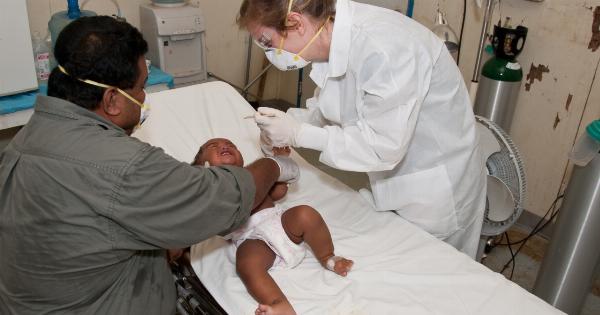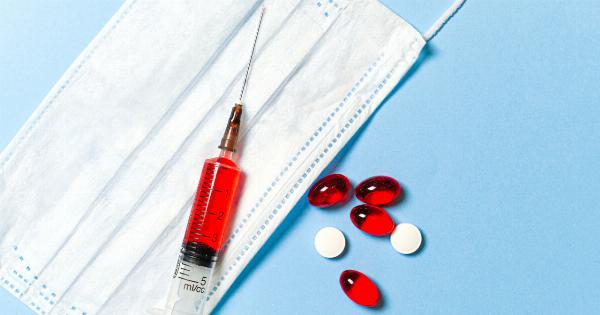Pediatric sinusitis refers to the inflammation of the sinuses in children. It is a common condition that can cause discomfort and affect a child’s well-being.
There are several medications available for the treatment of pediatric sinusitis, and understanding their uses and potential side effects is essential for effective management.
1. Antibiotics
Antibiotics are often prescribed for pediatric sinusitis, especially if it is caused by a bacterial infection. Commonly prescribed antibiotics include amoxicillin, ampicillin, and trimethoprim-sulfamethoxazole.
These medications help kill the bacteria causing the infection and alleviate symptoms. It is crucial to complete the full course of antibiotics to ensure effective treatment and prevent recurring infections.
2. Nasal Steroids
Nasal steroids are a type of medication that helps reduce inflammation and swelling in the nasal passages. They can effectively relieve symptoms such as nasal congestion, runny nose, and postnasal drip.
Some commonly used nasal steroids for pediatric sinusitis include fluticasone, budesonide, and mometasone. These medications are usually available in the form of nasal sprays or drops and should be used as directed by a healthcare professional.
3. Decongestants
Decongestants work by shrinking the swollen blood vessels in the nasal passages, which helps alleviate nasal congestion and improve breathing. They are available as oral medications or nasal sprays.
However, it is important to use nasal decongestant sprays cautiously in children and for a limited duration, as overuse can lead to rebound congestion. Common examples of decongestants for pediatric sinusitis include pseudoephedrine and phenylephrine.
4. Saline Nasal Wash
A saline nasal wash involves rinsing the nasal passages with a saltwater solution. This helps remove mucus, reduce inflammation, and promote drainage.
Saline nasal sprays or drops are readily available over-the-counter and can be safely used in infants and children to provide relief from nasal congestion and improve sinusitis symptoms.
5. Pain Relievers
Pediatric sinusitis can cause discomfort, facial pain, and headaches. Pain relievers such as acetaminophen or ibuprofen can help alleviate these symptoms.
However, it is crucial to use age-appropriate formulations and follow the recommended dosage guidelines. Aspirin should never be used in children, especially if they have symptoms of a viral infection, as it can lead to a potentially life-threatening condition called Reye’s syndrome.
6. Antihistamines
Antihistamines are commonly used to treat allergies; however, they may also be beneficial in managing pediatric sinusitis caused by allergic reactions. These medications can help relieve symptoms such as sneezing, runny nose, and itchy eyes.
It is essential to choose non-drowsy antihistamines for daytime use in children. Examples include loratadine, cetirizine, and fexofenadine.
7. Mucolytics
Mucolytics are medications that aid in loosening and thinning mucus, making it easier to expel from the respiratory tract. They can be useful in pediatric sinusitis cases where thick mucus obstructs the sinuses.
One commonly used mucolytic is guaifenesin, available in various pediatric formulations.
8. Immunotherapy
In cases where pediatric sinusitis is primarily caused by allergies, immunotherapy may be recommended. This treatment involves gradually introducing small amounts of allergens into the child’s body to desensitize their immune system.
Immunotherapy can be administered through allergy shots or sublingual tablets or drops. However, it is typically reserved for recurrent or severe cases of pediatric sinusitis.
9. Antipyretics
Sometimes, pediatric sinusitis can be accompanied by fever. In such cases, antipyretics like acetaminophen or ibuprofen can be used to reduce fever and provide relief.
These medications help lower body temperature and alleviate associated symptoms such as headache and discomfort. Care should be taken to administer appropriate doses based on the child’s age and weight.
10. Probiotics
Probiotics are beneficial bacteria that can help improve overall immune function and reduce the risk of infections, including those affecting the sinuses.
While more research is needed, some studies have suggested that certain strains of probiotics may help prevent and alleviate symptoms of pediatric sinusitis. Probiotics are available in various forms, including capsules, chewables, and powdered formulations.






























